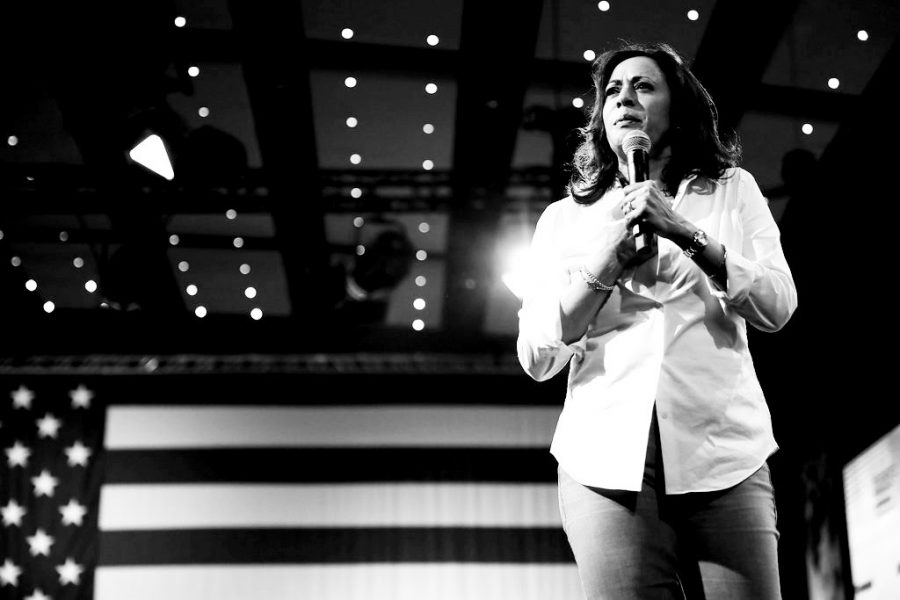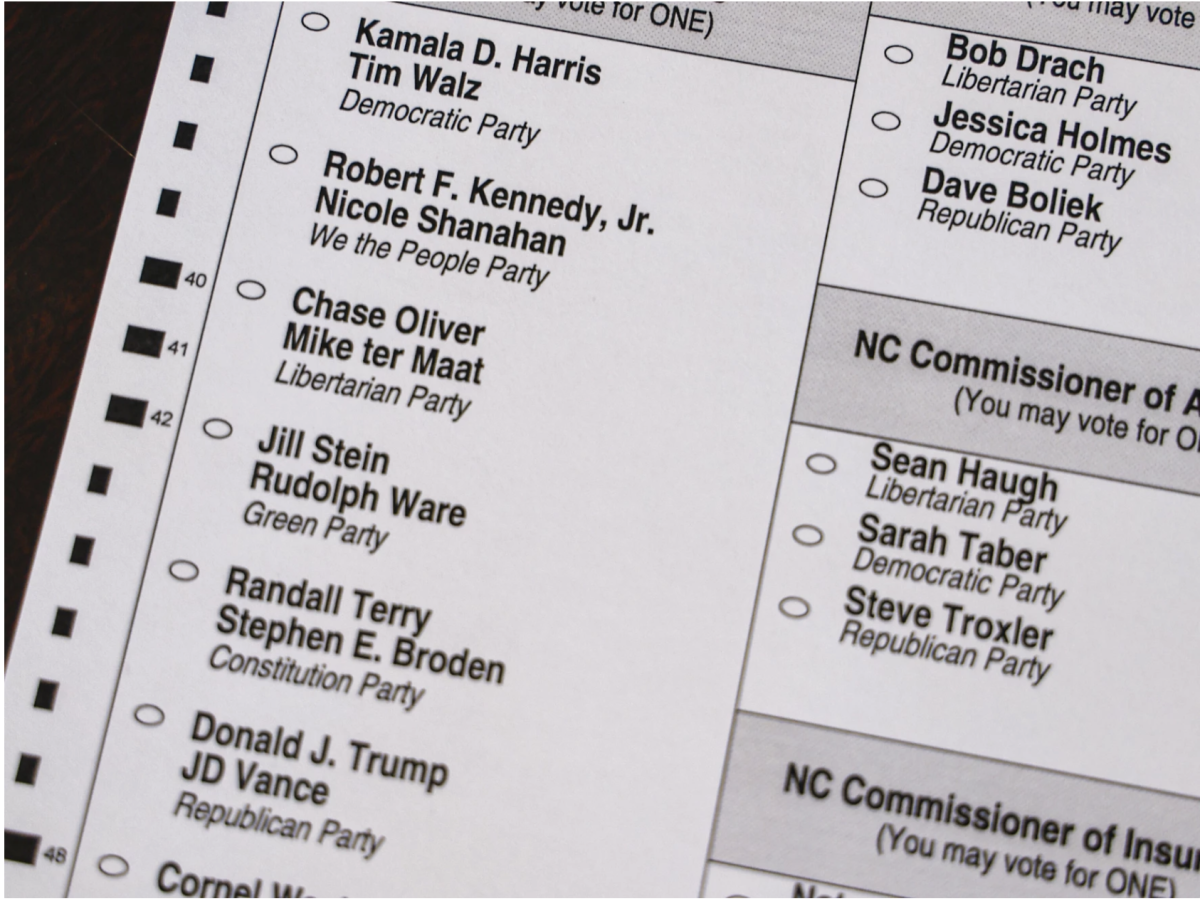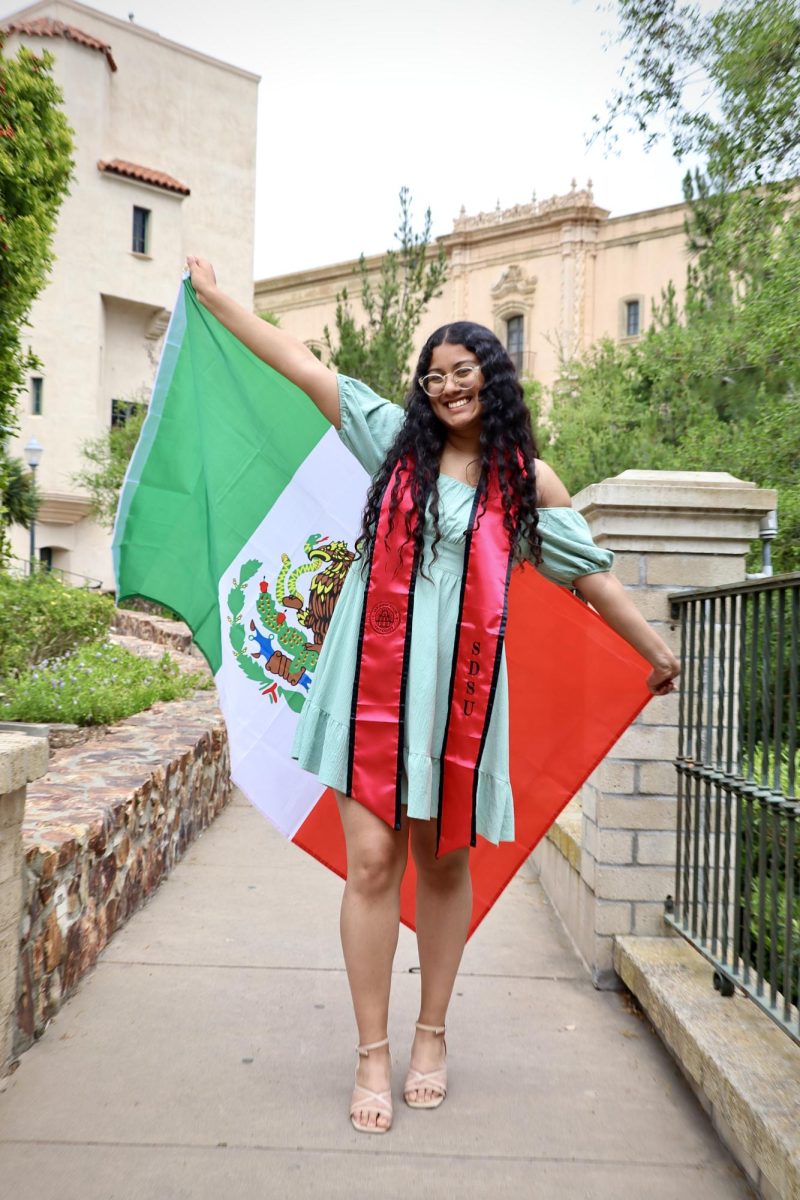The Democratic National Convention took place this week and its virtual stage was outshined by a historic first — the nomination of the first Black and Southeast Asian female Vice Presidential candidate to a major party in America’s 244-year history.
Sen. Kamala Harris of California formally accepted the nomination for vice president Wednesday night.
This moment comes twelve years after former Gov. Sarah Palin joined the Republican ticket in 2008 and thirty-six years after Rep. Geraldine Ferraro joined the Democratic ticket in 1984.
Only two white women have experienced this honor before Harris. The pair who came before Harris were both subject to sexist, partisan smears that ultimately spelled out defeat for the presidential candidates that chose them. Harris will surely experience the same fate of the women that came before her.
Republicans’ inability to put Harris in a box was clear when Senior Legal Adviser to Trump’s re-election campaign, Jenna Ellis, began floating a birther conspiracy that argued Harris is ineligible to be Vice President since her parents were Jamaican and Indian immigrants.
President Trump, who is no stranger to birtherism as a political strategy, failed to disavow this conspiracy in a press conference last week.
It was deja vu for those who remember President Obama releasing his birth certificate in response to Trump’s racist conspiracy theory that Obama was not born in the United States.
Harris’ eligibility remains undisputed, but it’s a preview of the tsunami of racism headed her way as the 2020 election heats up.
Harris formally accepted her nomination Wednesday and in doing so, cemented Black and Southeast Asian women onto the main stage of national politics. The Black and Asian communities have spent the last week rejoicing in Biden’s pick as a victory following a summer of protests against systemic racism and injustice.
This level of representation on a major party’s ticket is huge and cannot be understated. Recent elections, however, are saying this is a trend rather than an aberration.
According to Vox, the most diverse Congress in history was elected in 2018. 102 women were elected to the the House of Representatives, two of the first Muslim women were elected, along with the first Latina governor in U.S. history, Michelle Lujan Grisham.
This wave of representation is happening at the same time a Catalyst study from March 2020 says that women of color will be the majority of all women by 2060.
“I think Kamala Harris’ nomination will have a very positive impact on representation as more people who might not have participated see someone like themselves in a position of power,” San Diego Miramar College professor and political scientist Angela Romero said.
Associated Students Executive Vice President Isabella Martelino said it’s “vital for women, especially women of color, to see themselves reflected in positions of power”. She says this has “tangible effects on our communities and our democracy”.
This year, the SDSU community elevated Martelino (who identifies as Asian and Latinx) and a diverse group of students into the highest levels of A.S. in the Spring. The election was decided as the entire student body grappled with the early days of the coronavirus pandemic.
Martelino said Wednesday, ahead of Harris’ acceptance speech that Sen. Harris’ nomination as Vice President is a “powerful elevation of a woman of color, an impact that can change the perception of who is seen as a powerful leader in our country.”
The historic announcement pulled in $48 million dollars for the Biden-Harris campaign in the first 48 hours, Reuters reported.
The fundraising surge comes as an ABC News poll says Harris is the only candidate among the other three white men in this race, Biden, President Trump and Vice President Pence, to enjoy a net-positive favorability rating.
“In political science we often debate the benefits of descriptive representation, but as the nation becomes more diverse, it is absolutely vital that the nation’s leaders represent that diversity,” Romero said.
The question that remains heading out of this week’s convention is if the nomination of Harris and what this moment means for Black and Indian Americans is only symbolic, or if it turns out enough voters to be victorious in November.
Martelino said that she hopes inclusion is valued as much as diversity.
“While diversity invites us to the table, it is inclusion that empowers our voices to be heard while at the table,” she said.
The numbers and enthusiasm for Biden/Harris as the convention concludes are saying one thing: so far, so good.
But what’s next? Former Democratic candidate Andrew Yang said on CNN Tuesday night, “Now it’s just time for the American people to get to know their future vice president”.
Jayne Yutig is a junior studying journalism. You can follow her on Twitter @jayneyutig.














